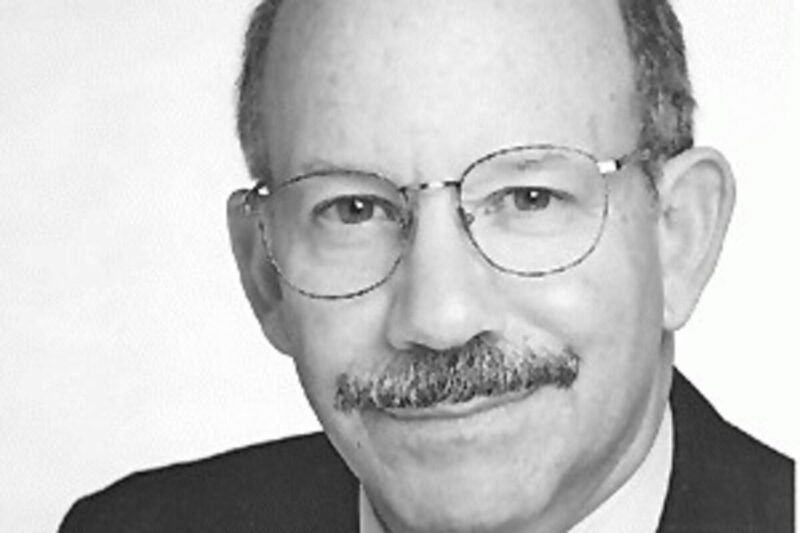Scott Swanson
Of The New Era
Peter DeFazio, 59, has represented the 4th Congressional District, which includes Linn, Lane and Benton counties and southwestern Oregon, since 1986 when he was elected to the seat of retiring Congressman Jim Weaver, DeFazio’s former boss.
DeFazio was born in Needham, Mass., and served in the Air Force from 1967 to 1971. He earned a bachelor’s degree in economics and political science form Tufts University in 1969. He earned a master’s degree from the University of Oregon in 1977, specializing in public administration and gerontology. He served as a caseworker and legislative assistant for Weaver before being elected in 1982 to the Lane County Board of Commissioners.
He and his wife, Myrnie Daut, live in Springfield.
DeFazio sits on the House Transportation and Infrastructure Committee, where he serves as ranking Democrat on the House Subcommittee on Highways, Transit and Pipelines. He also serves on the Aviation and Railroad subcommittees, the House Committee on Homeland Security, where he sits on the Subcommittee on Economic Security, Infrastructure Protection and Cybersecurity, and on the House Resources Committee, where he sits on the Subcommittee on Forests and Forest Health.
Federal funds DeFazio lists as having procured for communities in his district include some $134.8 million for Linn County over the past four years, the majority of that for transportation improvements and most of that for the Albany area. It also includes $150,000 for wastewater infrastructure improvements in Sweet Home and $130,000 for culvert replacement.
DeFazio portrays himself as someone who is an independent thinker, who has the ability to cross party lines and get things done.
“I have never sought to do what people demanded of me, or even what was currently popular, but instead, I have worked and voted for policies that I believed are in the best long-term interests of those I represent,” he said.
“This is a huge and politically diverse district. I travel back and forth between Washington, DC and the district, and around the district a lot to try and stay in touch. I have gotten support and respect from some pretty unlikely places over the years. I meet with people all the time who say “I’m a Republican, and I don’t always agree with you, but I always know where you stand and I respect that and I vote for you.”
“I think it’s time for people in Washington, D.C. to be consistent. I don’t have a different message for people in Sweet Home versus people in Eugene, or a different message in Springfield than in Brookings. I tell them all the same thing — what I believe.”
During his last term, DeFazio says, he secured $2.7 billion for road, bridges, highways and transit in Oregon. DeFazio negotiated a change in the highway funding formula that resulted in Oregon receiving an additional $210 million. As a result of the change, Oregon will now receive more in tax dollars than it contributes to the Federal Highway Trust Fund. In addition, Oregon will receive $297.2 million in mass transit funding over five years.
“As the principal Democratic negotiator for the House, I was able to get changes in the state funding formula and local match requirements,” DeFazio said. “Those provisions, coupled with the bridge money, total $450 million more than Oregon would have received under the old formula or the formula proposed in the original bill. Four hundred and fifty million dollars over five years — that will put 20,000 people to work investing in our future and our transportation efficiency. Those are good-paying jobs with benefits and will help make our state better.”
Other accomplishments he cites during his last term include:
– Championing county payments legislation. The legislation provides an additional $113 million a year to the State of Oregon and a $11 million annual increase for Linn and Benton Counties. On June 5, 2005, the House Resources Committee approved H.R. 517, legislation introduced by DeFazio and Oregon Rep. Greg Walden to reauthorize the program for seven years. Earlier this summer, DeFazio and Walden successfully offered an amendment to H.R. 4761, the Deep Ocean Energy Resources Act, which mandates that $50 million a year of new royalties collected by the federal government from companies engaged in outer-continental shelf oil and gas exploration be automatically directed to the county payments program.
– Videx, a Corvallis-based manufacturer, reported to DeFazio that one of its product lines had been counterfeited by a Chinese company, which caused Videx’s sales in China to drop from $1.2 million a year to $200,000.
In response, DeFazio coordinated a letter to the Secretary of Commerce and the U.S. Trade Representative that was signed by Rep. Darlene Hooley and senators Ron Wyden and Gordon Smith urging the Administration to use every tool at its disposal, including bringing the situation to the attention of high-level Chinese officials and filing a complaint at the World Trade Organization against China for violating its intellectual property commitments. DeFazio continues to monitor this situation. To date, the Administration has raised this issue with counterparts in China, but has not been willing to go beyond words to actually file a trade complaint at the WTO.
– DeFazio secured authorization for a $600,000 study of the Willamette River Basin to help alleviate low-water problems at Foster Reservoir and improve the management of the basin’s 12 other federally owned reservoirs. No study had been conducted since 1938.
– The congressman held 389 town halls in district, 73 of which were in Linn and Benton Counties.
– As of the end of 2006, DeFazio funded 157 scholarships for a total of $194,597 and returned an additional $65,322 to help retire the debt.
The Issues
Education: “First, we need to get full reauthorization and full funding for the Secure Rural Schools and Community Self-Determination Act – the county payments. We need that compact between the federal government and our counties, schools and communities in Southwest Oregon extended.”
Social Security: “We stopped the president and Wall Street in their rush to privatize Social Security, but we need a solution and I’ve offered one. I need to get my party to support it. There’s some reluctance because it would ask the wealthiest among us to pay the Social Security withholding at the same rate as the poorest among us do.”
Energy: “It’s been five years since Dick Cheney wrote the energy bill — in secret. The administration and Republican majority labored to pass a so-called energy plan for the United States of America. We managed to hold them off for almost four years because it wasn’t targeted toward the real needs of the country. It would have been an un-enlightened energy policy for the 1950s, let alone the 21st Century. It was full of subsidies for the oil and gas industries. Like they need any more subsidies — particularly when they’re raking in record profits and consumers are paying record prices at the pump. The taxpayers are going to borrow money to give them incentives to go out and find more oil and gas – that’s the biggest part of the energy bill.
“Now the president’s apparently changed his opinions on the issue. In the State of the Union speech, he said he wants to wean us from our dependence on oil and wants to invest more in alternative fuels and new technologies.
The only problem is, if President Kennedy had proposed funding to go to the moon at the same rate President Bush has proposed for new energy alternatives, we wouldn’t have made it to the moon yet. We need much more robust funding to help get America on a more sustainable track, which will allow us to be more energy self-sufficient, and improve our economic security.”
Iraq: “I opposed going to war, but now that we’re there, I have to be part of getting us out.”
“We need a plan. We need a timeline. I’m of the firm opinion that even though the Administration couldn’t understand that the Shia, Kurds and Sunnis had differences over the past 1,400 years, others did anticipate there would be problems with the peace. The question is how do we now knit them back together? I don’t believe that by saying we will stay there forever, if necessary, that will help them resolve their differences.
“I believe our country would be better served, and Iraq as a country would be better served, if we have a plan and a timeline to bring our troops home honorably and let Iraq stand on its own.”
National Security: “We do need real security. I serve on the Homeland Security Committee and if you read the report by the bi-partisan 9/11 Commission, you’ll find we’re failing the American people. But we’re not failing because we don’t have ideas, or technology. No, we’re failing because this administration is failing to fund those things at levels necessary to protect our borders, ports, airports, and other critical infrastructure. Instead, they’re engaged in rushing into contracts with Dubai to run our ports because commerce is the most important thing to them — not the security of our people. That’s wrong.”
National Debt: “We’ve got a flood of red ink. You can go to my congressional Web site and look at the debt clock – it’s kind of depressing to watch it grow, but it demonstrates that it’s well past time that we asked the wealthiest among us and most profitable corporations to pay their fair share of the burden to help defray that deficit and debt.
“I have never understood this idea, and now they’re trying to pass it in Oregon, that we’ll do away with the corporate kicker if we give tax cuts to everyone. Why is it people who invest for a living should pay taxes at one-half or one-quarter the rate that someone who labors 40 or 60 hours or more a week? Why not tax both at the same rate? If the wealthy investors pay at the same rate as the people who work by the sweat of their brow, we’d have a better-funded, more equitable tax system.
“And we can cut waste. But waste is not student financial aid. Out of the budget funding all of the federal programs in the U.S., the two programs that took the biggest cuts were student financial aid and health care for poor and struggling families. Not subsidies to oil and gas industries, or insurance companies, not corporate tax havens in the Bahamas, but students, seniors and struggling working families. And those priorities have got to change in this country.”
The lobbying scandals reverberating in Washington, D.C. are “just the latest symptom of the out-of-control money chase in Washington, D.C.,” DeFazio said. “We really do have the best Congress money can buy. That’s not good in terms of meeting the needs and priorities of a majority of Oregonians.
“I believe as many Oregonians do, that the policies coming from Congress and the White House are taking this country in the wrong direction on a host of issues both domestically and internationally. The public’s interests are not well served by a Congress that has become more of a lapdog for special interests than a watchdog for the needs and priorities of a majority of Americans.
“With changes in trade policy, changes in tax policy, changes in budget priorities, changes in the social programs that are essential like prescription drugs and Social Security, we can have an America where we all do better, but it all requires a change in direction in Washington, DC. You might be surprised that after 20 years in Congress, I’m still the one who wants to make changes.”





